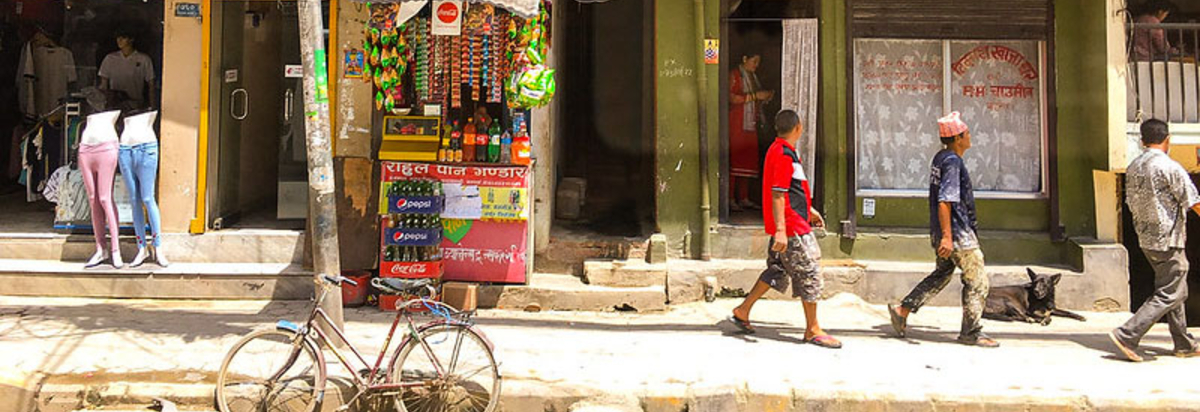
In Kathmandu, UKRI GCRF funding is enabling the Tomorrow’s Cities Hub to work in partnership with government, research institutes, civil society and communities. This interdisciplinary team is actively working to secure disaster risk management and livelihood opportunities for the most vulnerable populations caught up in rapid urban development. This five-year investment by UKRI is designed to secure lasting change, yet is under threat due to cuts to the UK’s ODA budget.
Internationally the lives and livelihoods of 2 billion people who live in cities of low-to-middle income countries are threatened by floods, earthquakes, landslides, volcanoes and fires. This number is expected to reach 4 billion by 2050. Nepal is particularly exposed, prone to multiple hazards, while persistent social and economic inequalities leave sections of the population more vulnerable. Four urban expansion programmes are underway in the Kathmandu Valley, but these present major challenges: an equitable development pathway must be found that integrates effective disaster risk management while resolving emerging land use conflicts, deteriorating environmental quality, pressure on natural resources, and the sanitation, health, housing and livelihood issues that plague the everyday lives of the urban poor.
Tomorrow’s Cities is generating impact for the most vulnerable populations by securing their participation in development and disaster risk management planning. Supported by the active involvement of the Ward Chair of Khokana, a ward of Lalitpur Metropolitan City in the southwest of the Kathmandu Valley, and the Joint Secretary of the Ministry of Urban Development, the research team is bringing together hazard scientists, urban planners, and marginalised populations to produce a risk-sensitive land use plan that represents the priorities of local communities while recognising the wider context of disaster risk and national priority development initiatives.
The Disaster Risk Reduction and Management (DRRM) Act 2017 of Nepal and the DRRM Act 2019 of Lalitpur Metropolitan City both created the legal provision for the Ward Level Disaster Management Committee (WDMC) in Khokana. Through ongoing workshops organised by Tomorrow’s Cities, the committee is now operational with 17 members, including six women and representatives from Dalit and marginalised community groups. As Rabindra Maharjan, Ward Chair of Khokana puts it:
“Our community was badly affected by the 2015 Gorkha earthquake. We have discussed our concerns about the government plans for urban expansion into our ward with the Tomorrow’s Cities team. They are studying how the risk of floods, earthquakes and landslides should be considered in future development plans for our region. The team are working with us to meet with the Ministry for Urban Development in order to build a land use plan for future development that accounts for these risks and supports the concerns of all our community members”.
This work is only possible because of GCRF ODA research funding which emphasises research through partnerships so that new knowledge is useful and used. The Tomorrow’s Cities Hub was co-designed with our team in Kathmandu right from the outset, rooting our research and impact agenda in the local context. Any cut in agreed research budgets will undermine this hard won, trusted relationship between the community members and officials in Kathmandu and the UK research partners. This partnership is exemplified by the support of Padma K Mainalee, Joint Secretary, Ministry of Urban Development, who has seconded staff to the research team: “The Tomorrow’s Cities team in Kathmandu has developed a very interesting approach to understanding risk for the city, which does not focus on existing buildings but looks forward so that we can understand the complex origins of disaster risk while still at the planning stage.”
Rabindra Maharjan recognises the value of this approach: “We are thankful for this opportunity for our concerns to be heard at government level and look forward to future collaboration with our partners in the Tomorrow’s Cities team.” In Kathmandu, ODA cuts to already programmed research will directly harm the life chances of the most vulnerable today, and show the UK to be an untrustworthy partner in the future.
Photo credit: cattan2011, Flickr, CC BY 2.0